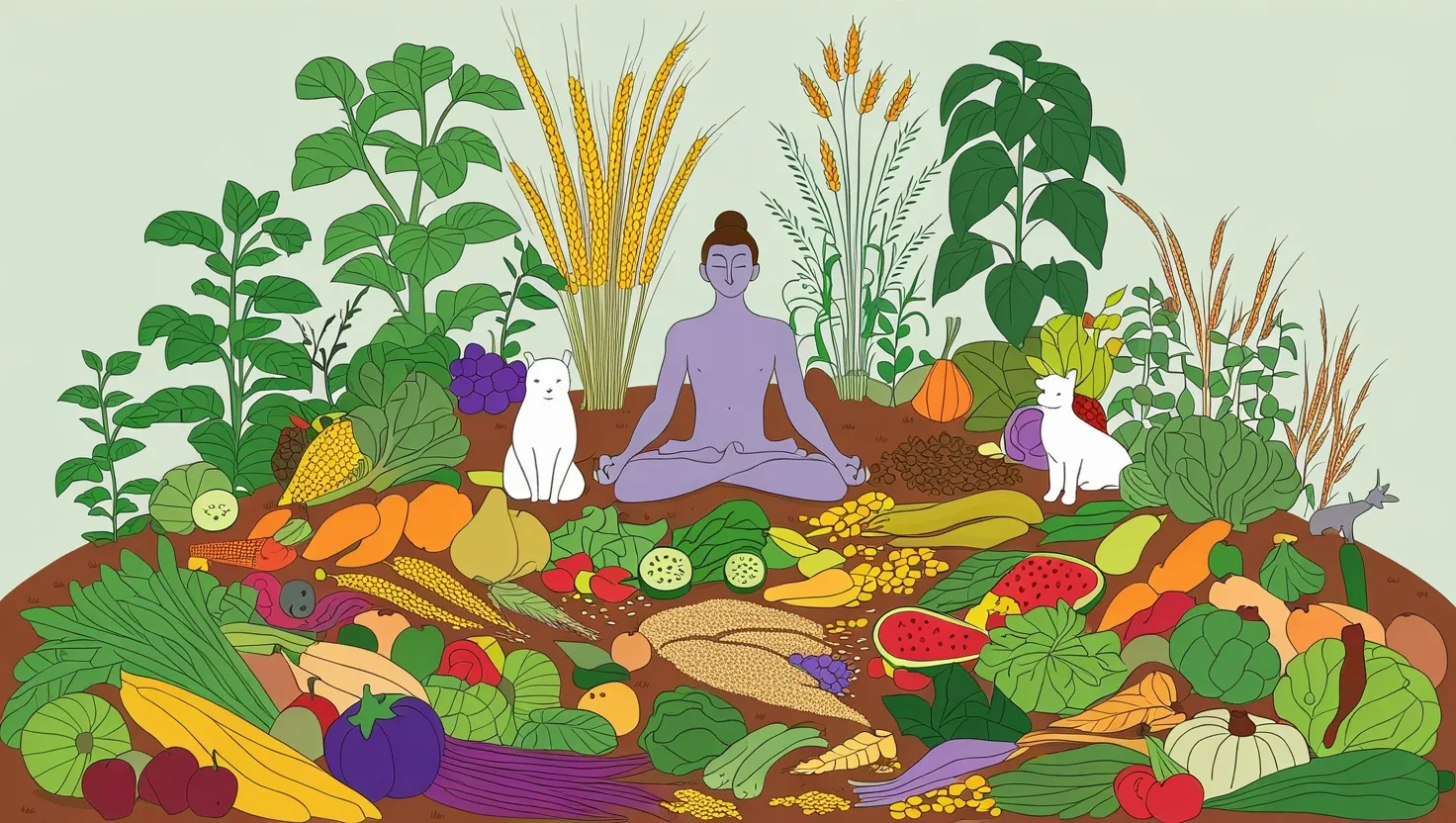In the vast and diverse landscape of dietary practices, the Jain diet stands out as a unique and profoundly spiritual approach to nourishment. Rooted in the ancient Indian religion of Jainism, this diet is more than just a set of culinary preferences; it is a way of life that embodies the principles of non-violence, truth, and asceticism.
At its core, the Jain diet is strictly vegetarian, but it goes far beyond the typical vegetarian diet. Jains believe that every living organism, from animals to plants and even microorganisms, possesses a soul. This belief drives their commitment to minimizing harm to all living beings through their food choices. For instance, Jains avoid consuming root vegetables like potatoes, onions, and garlic because harvesting these plants involves uprooting the entire plant, thereby causing harm to the life within the soil.
The concept of non-violence, or ahimsa, is central to Jainism and extends deeply into daily life. When it comes to food, this means choosing fruits and produce that do not involve the destruction of the entire plant. For example, Jains prefer to eat fruits like apples and peas rather than consuming the entire plant, such as a carrot or potato. This mindful approach to eating is not just about personal health but also about spiritual purification and the cultivation of a peaceful and disciplined mind.
One of the lesser-known aspects of the Jain diet is its categorization of foods based on their impact on spiritual well-being. In Jain philosophy, foods are classified into three categories: Sātvika, Rājasika, and Tāmasika. Sātvika foods are those that are pure, nutritious, and conducive to spiritual well-being, such as fresh fruits, vegetables, grains, and nuts. These foods are believed to promote mental clarity and spiritual purity.
The Jain diet also places a strong emphasis on fasting and penance, particularly during the annual eight-day festival of Paryushana. Fasting is seen as a means of spiritual purification and self-discipline, allowing individuals to reflect on their actions and align themselves more closely with the principles of Jainism. This practice is not just about abstaining from food but also about cultivating a deeper sense of compassion and respect for all life forms.
From a health perspective, the Jain diet offers numerous benefits. A plant-based diet rich in fruits, vegetables, and nuts is associated with lower rates of heart disease, diabetes, and certain cancers. The diet’s focus on whole, unprocessed foods high in nutrients and fiber also contributes to overall well-being. Moreover, the avoidance of fermented and processed foods helps in maintaining a balanced and healthy lifestyle.
The environmental impact of the Jain diet is another significant aspect. By choosing locally grown, seasonal, and organic foods, Jains promote a more sustainable and resilient food system. This approach respects the rights of all living beings and minimizes the ecological footprint associated with food production. For instance, Jains often support small-scale farmers and biodiversity, which helps in maintaining the natural balance of ecosystems.
In the modern world, where sustainability and ethical consumption are increasingly important, the Jain diet offers valuable lessons. The emphasis on minimizing harm to all living beings and promoting a harmonious existence with nature is particularly relevant. As the world grapples with issues like climate change, deforestation, and animal welfare, the Jain approach to food can serve as a model for more conscious and sustainable living.
For those who might find the restrictions of the Jain diet daunting, it is worth noting that the community provides strong support and resources. For example, young Jains are increasingly promoting the intersection of Jainism and veganism, showing that these principles can be applied in creative and delicious ways. Priyanka Shah, a plant-based Jain blogger, shares recipes on social media to inspire others that Jain and vegan food can be equally delicious and creative.
The Jain diet also influences other aspects of life beyond food choices. The principle of ahimsa extends to personal conduct and professional lives. Jains must consider the ethical implications of their business choices, such as avoiding jobs that involve animal testing or the design of military equipment. This holistic approach to non-violence makes Jains active participants in debates on international conflict, economic fairness, and environmentalism.
In personal terms, adopting elements of the Jain diet can be a transformative experience. By being more mindful of the food we eat and the impact it has on the world around us, we can cultivate a deeper sense of empathy and social responsibility. For instance, choosing to avoid foods that involve harm to living beings can lead to a greater appreciation for the interconnectedness of all life forms.
The Jain diet is not just a dietary guideline; it is a way of living that seeks to harmonize human existence with the natural world. As we navigate the complexities of modern life, the principles of Jainism offer a compelling model for ethical consumption and sustainability. By embracing a plant-based lifestyle and making mindful food choices, we can contribute not only to our personal health but also to the well-being of the planet and all its inhabitants.
In a world where dietary trends often focus on quick fixes and temporary benefits, the Jain diet stands as a testament to the power of a long-term, spiritually grounded approach to nourishment. It reminds us that the choices we make about what we eat are not just personal but also have broader implications for the world we live in. As we consider our own dietary practices, the Jain diet invites us to reflect on the deeper values and principles that guide our choices, and to strive for a lifestyle that is more compassionate, sustainable, and harmonious with nature.






